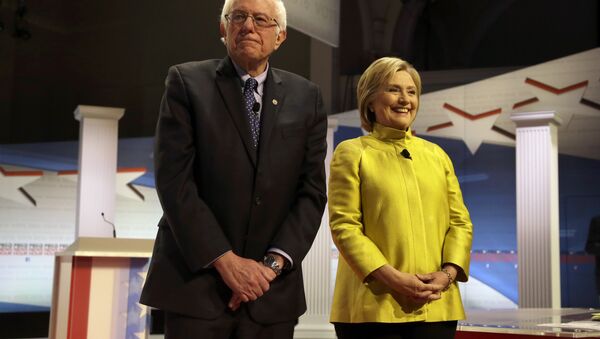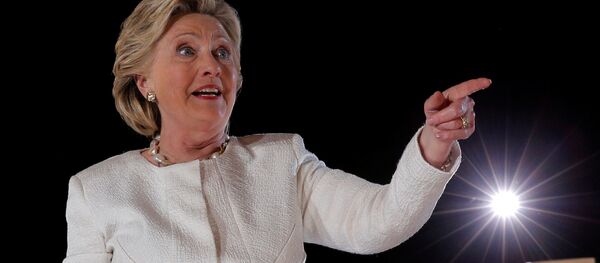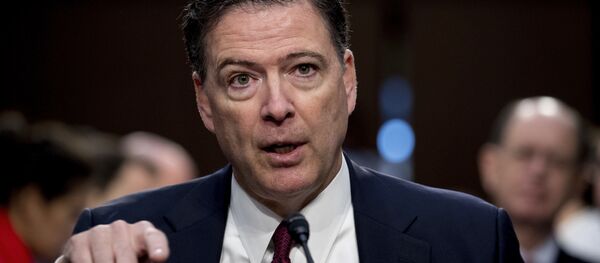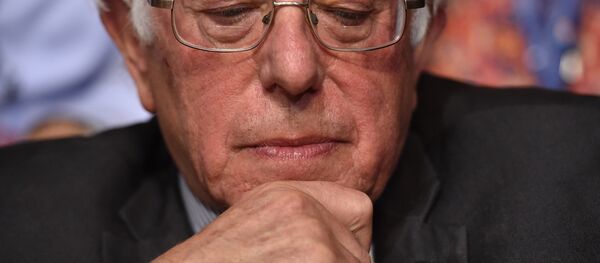Clinton's new book, "What Happened," seeks to explain in her own words why she lost to Trump despite being clearly favored by pollsters, the political establishment, and the majority of mainstream media sources. Clinton's seventh book, which is slated for a September 12 release, is described on the book's official website as the story of an "intense personal experience of becoming the first woman nominated for president by a major party in an election marked by rage, sexism, exhilarating highs and infuriating lows, stranger-than-fiction twists, Russian interference, and an opponent who broke all the rules."
Something not mentioned in the blurb? Bernie Sanders, a "fundamentally wrong" candidate whose policies were "pipe dreams" and whose tactics involved resorting to "innuendo and impugning [Clinton's] character."
"Throughout the primaries, every time I wanted to hit back against Bernie's attacks, I was told to restrain myself," wrote Clinton in her book. An advanced copy was secured by twitter user @HillaryWarnedUs, which is pretty much what you'd expect it to be from the name.
"President Obama urged me to grit my teeth and lay off Bernie as much as I could. I felt like I was in a straitjacket." — HRC pic.twitter.com/AAaKCq9DAR
— Hillary Warned Us (@HillaryWarnedUs) September 4, 2017
"Noting that his plans didn't add up, that they would inevitably mean raising taxes on middle-class families, or that they were little more than a pipe dream — all of this could be used to reinforce his argument that I wasn't a true progressive," Clinton continued. "My team kept reminding me that we didn't want to alienate Bernie's supporters. President Obama urged me to grit my teeth and lay off Bernie as much as I could. I felt like I was in a straitjacket."
Bernie, Hillary went on to write, "had to resort to innuendo and impugning my character. Some of his supporters, the so-called Bernie Bros, took to harassing my supporters online. It got ugly and more than a little sexist. When I finally challenged Bernie during a debate to name a single time I changed a position or a vote because of a financial contribution, he couldn't come up with anything."
"(Bernie) got in to disrupt the Democratic Party." — HRC pic.twitter.com/K2qvCcSnyH
— Hillary Warned Us (@HillaryWarnedUs) September 4, 2017
Sanders famously declared during the October 2015 Democratic debate that "the American people are sick and tired about hearing about [Clinton's] damn emails," in reference to the scandal over Clinton's use of a private, unsecure server for official communications during her tenure as Secretary of State. The moment drew praise, as Sanders dropped the opportunity to potentially score political points against Clinton to instead "talk about the real issues facing the American people."
It doesn't seem to occur to Clinton that Bernie may have been holding back on calling her a corrupt liar for the same reason she was holding back on calling him a delusional fool — so as to not alienate potential voters in a general election bid.
Furthermore, Sanders openly endorsed Hillary after conceding and said he would do "whatever it takes" to keep Trump from the White House, including campaigning for his former rival.
"Nonetheless, his attacks caused lasting damage, making it harder to unify progressives in the general election and paving the way for Trump's 'Crooked Hillary' campaign," Clinton wrote. Trump was accusing Hillary of being corrupt long before the general election, writing "corruption is what she's best at" in a November 2015 tweet.
A January 2017 SurveyMonkey poll surveyed the voting patterns of Americans and found two trends: firstly, people who strongly disliked both candidates were much more likely to vote for Trump than Clinton. These were mainstream Republicans who found Trump a highly bitter pill to swallow as well as fringe groups who would likely never support a mainstream candidate.
Secondly, non-white voters disproportionately stayed home, making up only 25 percent of the electorate, despite representing about 38 percent of the US population — non-white voters who did vote did so overwhelmingly for Clinton.
The numbers make it pretty clear: Clinton did not energize or endear herself to any particular group of voters, and Trump did (white voters without college degrees, 67 percent of whom voted for Trump according to Pew Research).
Hillary has gained a reputation for blaming anyone she can for her narrow loss to Trump — everyone but herself. During a May interview, she blamed Russian hackers, Infowars, former FBI Director James Comey, sexism, Facebook, the Democratic National Committee, and Pizzagate for her loss.
"I take responsibility for every decision I made, but that's not why I lost," shrugged Clinton, with a perfectly straight face.





